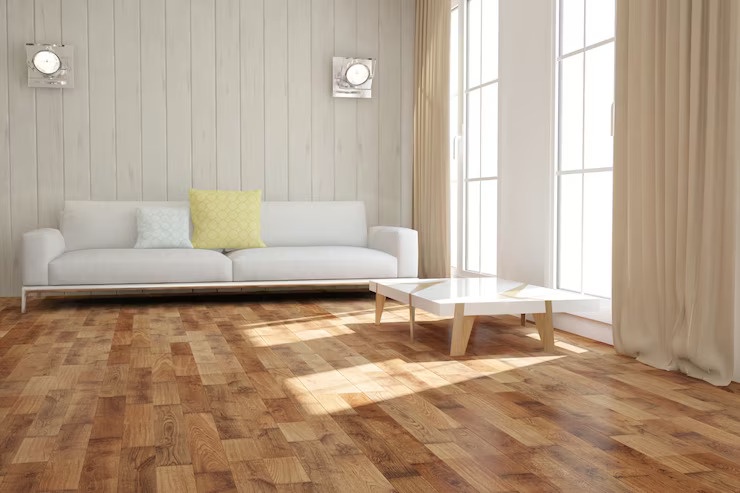If you’re considering installing engineered wood flooring, it’s important to be familiar with its many benefits and drawbacks. This guide will outline each of these details so that you can make an informed decision. Once you know everything there is to know, you can decide whether engineered wood flooring is the right choice for your home.
Pros
Highly Durable: Engineered wood flooring is manufactured to very high standards, and is often installed in areas where a lot of foot traffic is common, such as commercial, institutional, and public spaces. This flooring is very durable and will look great for years even in high-traffic areas.
Easy Installation: One of the main advantages of engineered wood flooring is that it can be installed quickly and easily using a click-together flooring system.
The engineered timber flooring installation method can make the cost of installing engineered hardwood floors a lot cheaper, but it's important to talk to your contractor to get specific details. They'll likely thank you for making their job easier. If installed correctly, engineered wood flooring can be just as durable as solid wood flooring.
Greater Temperature Resistance: Engineered wood flooring has one big advantage over traditional hardwood - it is more resistant to moisture and temperature changes. This makes it a good choice for any new home renovations that include water-fed underfloor heating.
Easy to Clean: Engineered wood floors are easier to clean than other types of flooring, as they don't tend to accumulate dust and dirt. Cleaning schedules generally consist of mopping with a damp cloth and dusting using a broom. The flooring will retain its shine for several years.
Affordable: Some people prefer traditional hardwood floors, while others find them too expensive. Engineered hardwood floors are a good compromise, as they are not as expensive as real hardwood, but still, look like the real thing.
Engineered hardwood is similar in appearance and texture to traditional hardwood, but it is often cheaper.
Number of Options: There are many types of wood flooring available on the market, no matter what your specific needs are. Some of the most trendy options include engineered wood flooring, which comes in a variety of designs, textures, colours, and styles to match your specific decor needs. You can also find engineered wood flooring in different thicknesses, widths, and species, depending on your budget and requirements. If you need any help selecting the right option for you, our product experts are available to help.
Aesthetic Appeal: Engineered hardwood looks and feels like traditional hardwood flooring on the surface, but it comes in a variety of different finishes. It is also a very popular flooring choice because it has a timeless look and is available in a variety of different colours and styles.
Cons
Fading: One of the things to keep in mind about engineered wood flooring is that it will fade if it is exposed to sunlight. If you have a sunny room, be prepared for fading if you choose to install engineered wood flooring. You can try to keep your blinds and drapes closed to help retard the fading process.
Engineered Wood Flooring is susceptible to Scratches: If you are considering installing engineered wood flooring, you should know that it is less durable than other flooring options, such as the luxury vinyl plank. This is because all wood flooring is susceptible to scratches, and solid wood flooring can be more prone to wear and tear. Additionally, if you experience a lot of scratching and wear on your engineered wood floor, you may need to freshen up and refinish it.
Limited Resurfacing: An engineered hardwood floor is protected by a veneer layer, which means that it can only be sanded and refinished a few times before the hardwood starts to erode and the underlying wood is revealed. The number of times you can resurface the floor depends on the thickness of the veneer layer.
Conclusion: There are some disadvantages of engineered wood flooring, but they are relatively minor in comparison to the many benefits of this type of flooring.
Before making a flooring purchase, be sure to consult with professionals at your local flooring store to get the most accurate information for your specific situation. There are several other options available, so be sure to consider them before making a decision.


No comments yet